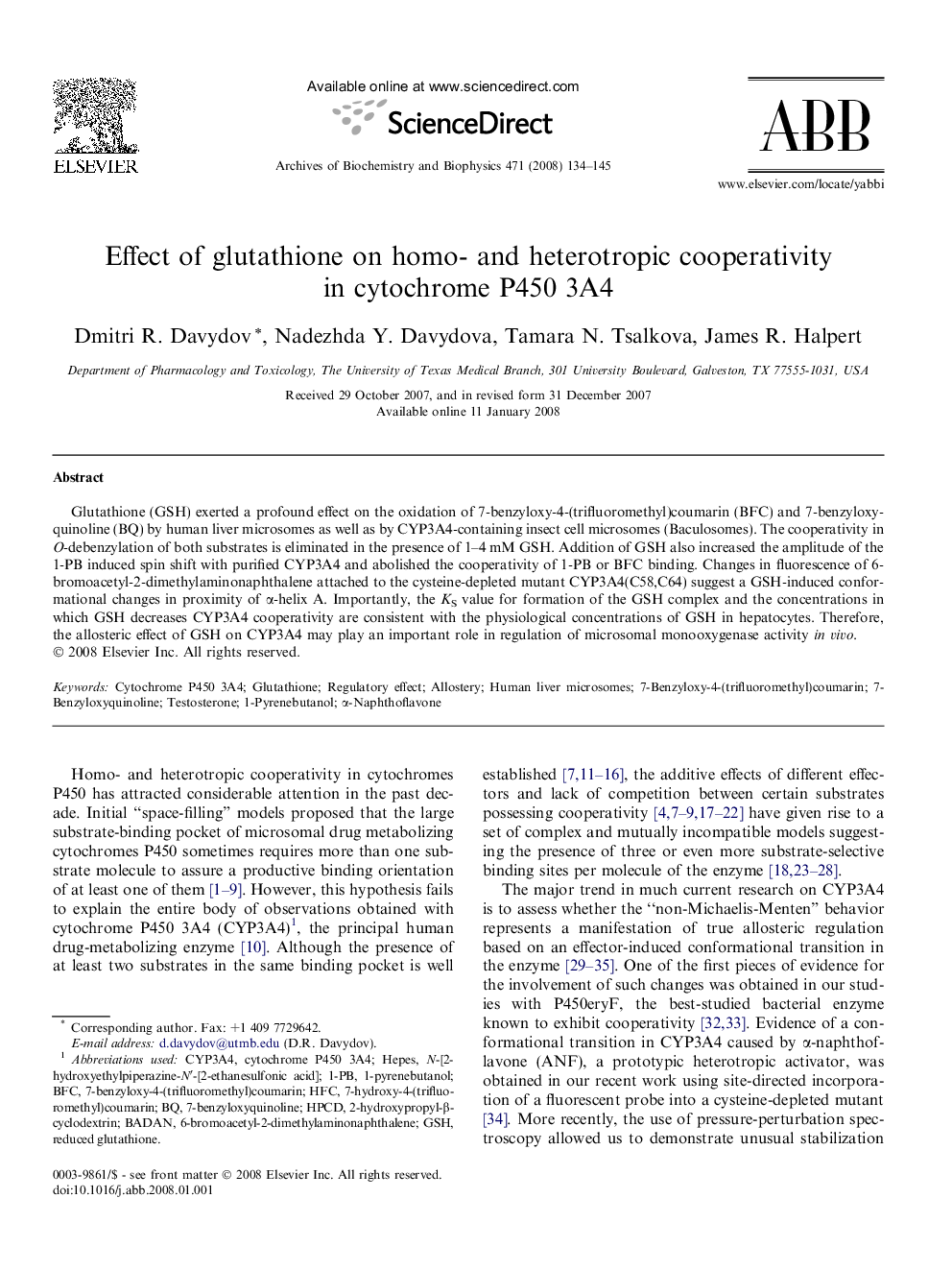| Article ID | Journal | Published Year | Pages | File Type |
|---|---|---|---|---|
| 1926733 | Archives of Biochemistry and Biophysics | 2008 | 12 Pages |
Glutathione (GSH) exerted a profound effect on the oxidation of 7-benzyloxy-4-(trifluoromethyl)coumarin (BFC) and 7-benzyloxyquinoline (BQ) by human liver microsomes as well as by CYP3A4-containing insect cell microsomes (Baculosomes). The cooperativity in O-debenzylation of both substrates is eliminated in the presence of 1–4 mM GSH. Addition of GSH also increased the amplitude of the 1-PB induced spin shift with purified CYP3A4 and abolished the cooperativity of 1-PB or BFC binding. Changes in fluorescence of 6-bromoacetyl-2-dimethylaminonaphthalene attached to the cysteine-depleted mutant CYP3A4(C58,C64) suggest a GSH-induced conformational changes in proximity of α-helix A. Importantly, the KS value for formation of the GSH complex and the concentrations in which GSH decreases CYP3A4 cooperativity are consistent with the physiological concentrations of GSH in hepatocytes. Therefore, the allosteric effect of GSH on CYP3A4 may play an important role in regulation of microsomal monooxygenase activity in vivo.
